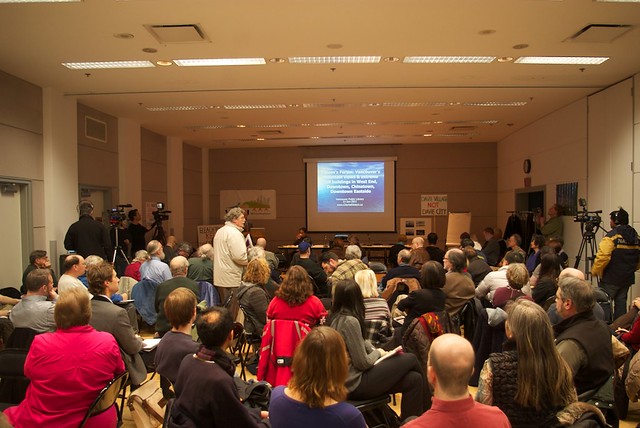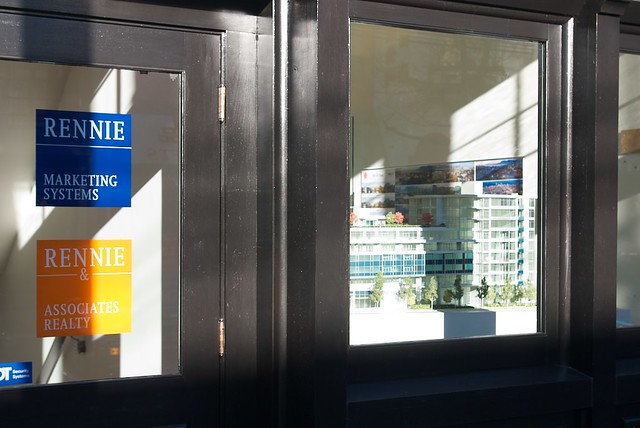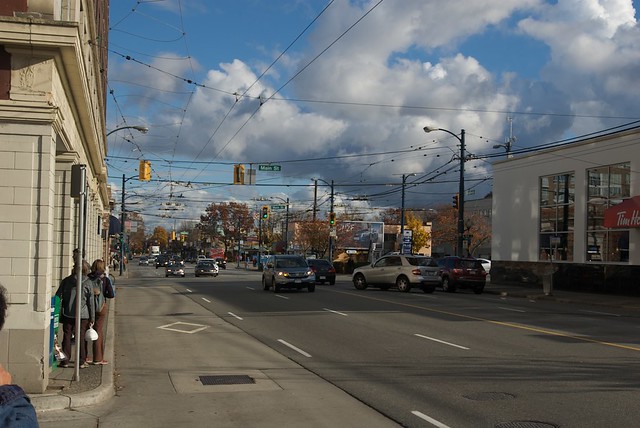At a forum held last night at the VPL, residents questioned the way the City of Vancouver conducts public consultations. The event’s organizers, a group called cityhallwatch, admitted that the forum had been, out of necessity, organized on short notice.
Nevertheless, the forum was well attended, including a member from each of the city’s three sitting municipal parties, real-estate developers, city planners, and grassroots community organizers. There was urgency in the air, as the policies under discussion go to City Council next week.
Randy Helten, cityhallwatch founder, argued that lack of notification and community involvement are only part of a systemic problem in municipal politics in Vancouver. Staff reports and public hearing agendas are often released with very short notice to the public.
Jean Swanson, of the Carnegie Community Action Project, explained how building 7 condo towers in the Downtown Eastside, as proposed, would displace the community’s current residents and community assets by pricing them out and attracting a new class of condo buyers and boutique stores catering to them.
After the evening’s planned presentations, the audience was invited to speak on any particular issues they had. There was significant criticism of Vision Vancouver’s planning policies, and their general attitude towards the community.
The only Vision councillor in attendance, Geoff Meggs, stood up to represent Vision and defend his party, arguing that consultations had been made and that views of the mountains would be saved. Many attendees emphasized that even they (who tended to be relatively engaged in municipal politics) hadn’t been included in consultations, nevermind notified of them.
Concerns were also raised about who exactly would benefit from rezoning for towers. Helten emphasized the increasingly influential role of developers in city planning, and brought up the recent radio interview where former Director of City Planning Ray Spaxman (former consultant on the Historic Area Height Review, who recently spoke with The Mainlander) warned of their influence.




